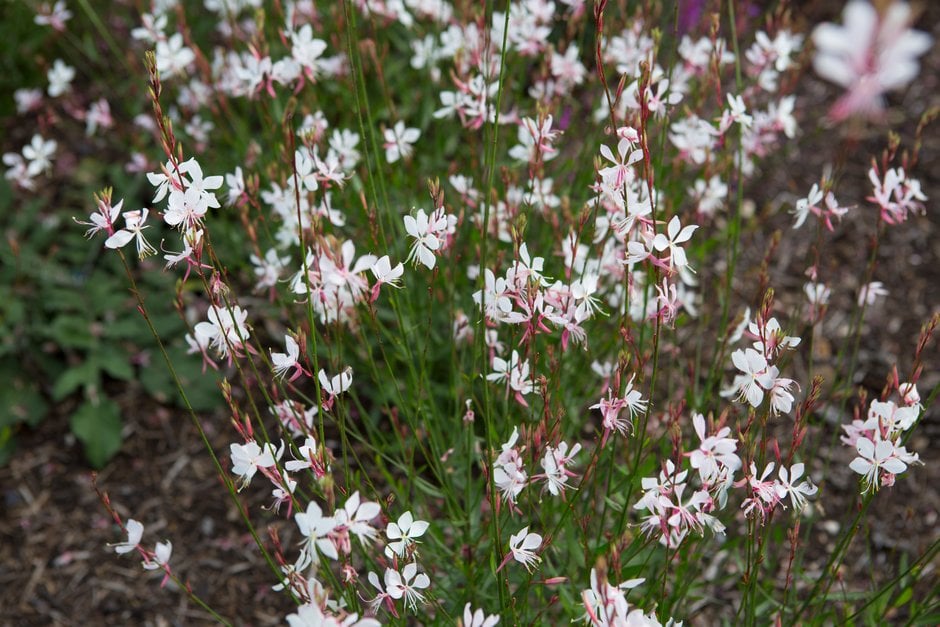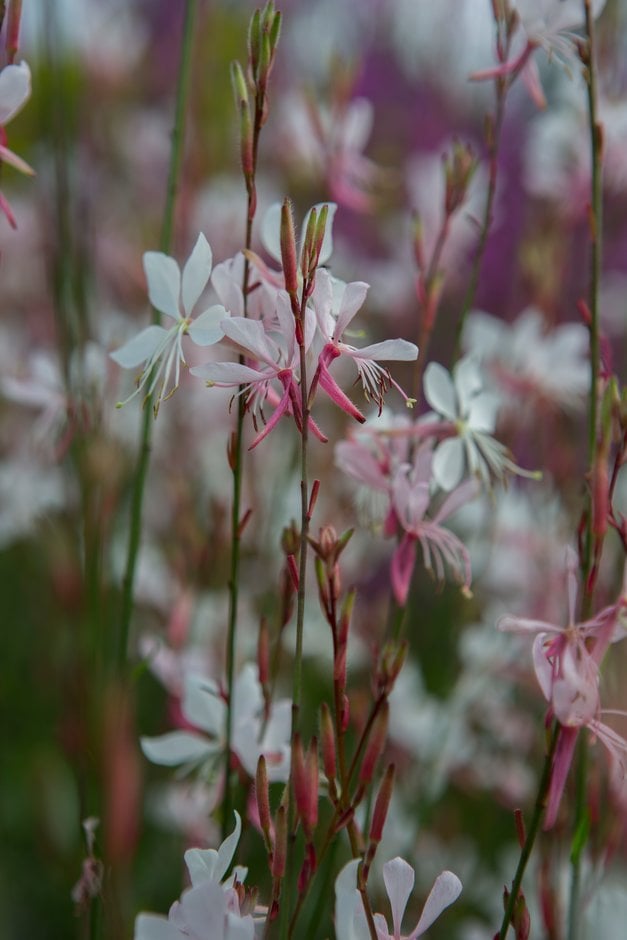Oenothera lindheimeri 'Whirling Butterflies' (G)
gaura 'Whirling Butterflies'
An uprightherbaceous perennial to about 80cm, producing airy spires of delicate white flowers with long whitestamens, opening from pink buds over a long period from late spring to early autumn
Size
Ultimate height
0.5–1 metresTime to ultimate height
2–5 yearsUltimate spread
0.1–0.5 metresGrowing conditions
Moisture
Moist but well–drained, Well–drainedpH
Acid, Alkaline, NeutralColour & scent
| Stem | Flower | Foliage | Fruit | |
| Spring | White Pink | Green | ||
|---|---|---|---|---|
| Summer | White Pink | Green | ||
| Autumn | White Pink | Green | ||
| Winter |
Position
- Full sun
- Partial shade
Aspect
South–facing or West–facing
Exposure
Exposed or Sheltered Hardiness
H4Botanical details
- Family
- Onagraceae
- Native to GB / Ireland
- No
- Foliage
- Deciduous
- Habit
- Clump forming
- Genus
Oenothera can be annuals, biennials or perennials, upright or spreading in habit, with simple or lobed leaves and bowl-shaped, white, yellow or pink flowers over a long period in summer
- Name status
Accepted
How to grow
Cultivation
Best grown in fertile, moist but well-drained soil in full sun; but dry soils and partial shade tolerated
Propagation
Propagate by division, basal cuttings or softwood cuttings in spring or by semi-ripe cuttings in summer
Suggested planting locations and garden types
- Cottage and informal garden
- Prairie planting
- Wildlife gardens
- Flower borders and beds
Pruning
Can produce autumn tints in cold weather so delay cutting back until spring
Pests
Generally pest-free
Diseases
Generally disease-free
Love gardening
Sign up to receive regular gardening tips, inspiration, offers and more
View our Privacy Policy
Get involved
The Royal Horticultural Society is the UK’s leading gardening charity. We aim to enrich everyone’s life through plants, and make the UK a greener and more beautiful place.

